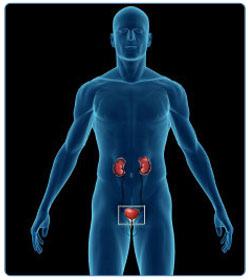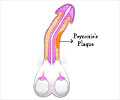Causes of Erectile Dysfunction
Eighty percent of erectile dysfunction cases are due to physical factors such as drugs or abnormalities associated with blood flow, nerve impulses or hormones.
The causes of erectile dysfunction are listed below:
Psychological causes of erectile dysfunction-
- Performance anxiety and depression are associated with erectile dysfunction.
Erectile dysfunction due to problems in blood flow-
Problems with blood supply to the penis constitute the most common causes of erectile dysfunction, especially in older men.
- When the problem is arterial, it is usually caused by arteriosclerosis (hardening of the arteries) or trauma to the arteries. The controllable risk factors for arteriosclerosis such as being overweight, lack of exercise, high cholesterol, high blood pressure, and cigarette smoking can cause erectile failure often before progressing to affect the heart.
- Many experts believe that when veins are the cause, a venous leak or ‘cavernosal failure’ is the most common vascular problem.
Neurological causes of erectile dysfunction-
Nerves supplying to the penis can be affected in the following conditions and lead to erectile dysfunction-
- Diabetes
- Chronic alcoholism
- Multiple sclerosis
- Heavy metal poisoning
- Spinal cord and nerve injury
- Nerve damage from pelvic operations
Hormonal causes of erectile dysfunction-
Hormonal causes of erectile dysfunction include-
- Increased prolactin (a hormone produced by the anterior pituitary gland)
- Steroid abuse by body-builders
- Hypo or hyperthyroidism
- Hormones administered for prostate cancer
- Low testosterone levels
Drug-induced erectile dysfunction-
A great variety of prescription drugs can cause erectile dysfunction. These include-
- Blood pressure medications
- Anti-anxiety and antidepressant medications
- Glaucoma eye drops
- Cancer chemotherapy agents
Underlying medical conditions that cause erectile dysfunction-
Medical conditions that can lead to erectile dysfunction are-
- Diabetes- Erectile dysfunction is common in people with diabetes. The process involves premature and unusually severe hardening of the arteries. Peripheral neuropathy, with involvement of the nerves controlling erections, is commonly seen in persons with diabetes.
- Kidney failure
- Multiple sclerosis





















